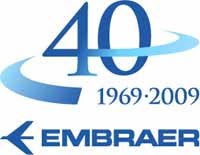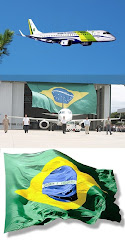+JAN+2004.jpg) Cessna 500 Citation (T9-SBA) JAN 2004
Cessna 500 Citation (T9-SBA) JAN 2004+SET+2007.jpg)


República Sérvia : Uma entidade autônoma da Federação da Bósnia e Herzegovina
A República Sérvia (Република Српска, Republika Srpska) é uma das duas entidades política e autônoma em que está dividida a Federação da Bósnia e Herzegovina.
Foi constituída como entidade em 21 de dezembro de 1991 e proclamou a independência em 7 de abril de 1992. Voltou a integrar-se na Bósnia e Herzegovina em 14 de dezembro de 1995.
Republika Srpska : (Serbian Latin, Bosnian, and Croatian:Republika Srpska, Serbian Cyrilic: Република Српска) is one of the two political entities which represent a lower level of governance in the state of Bosnia and Herzegovina; the other entity is the Federation of Bosnia and Herzegovina. The de facto capital of Republika Srpska is Banja Luka, which is also the second largest city in the country; according to Article 9 of its constitution, however, the official capital is Sarajevo.[1] This is currently being changed, and the relevant law has been passed.[7]
During the 1992-1995 Bosnian War, Pale was known as the de facto capital of the Republika Srpska, which was then called the Serbian Republic of Bosnia and Herzegovina, a self-proclaimed state led by former president Radovan Karadžić within the internationally recognized territory of the Republic of Bosnia and Herzegovina.
Republika Srpska is home to three ethnic "constituent peoples": Bosnian Serbs, Bosniaks and Bosnian Croats. On January 9 Republika Srpska celebrates its patron saint St. Stephen.
A República Sérvia (Република Српска, Republika Srpska) é uma das duas entidades política e autônoma em que está dividida a Federação da Bósnia e Herzegovina.
Foi constituída como entidade em 21 de dezembro de 1991 e proclamou a independência em 7 de abril de 1992. Voltou a integrar-se na Bósnia e Herzegovina em 14 de dezembro de 1995.
Republika Srpska : (Serbian Latin, Bosnian, and Croatian:Republika Srpska, Serbian Cyrilic: Република Српска) is one of the two political entities which represent a lower level of governance in the state of Bosnia and Herzegovina; the other entity is the Federation of Bosnia and Herzegovina. The de facto capital of Republika Srpska is Banja Luka, which is also the second largest city in the country; according to Article 9 of its constitution, however, the official capital is Sarajevo.[1] This is currently being changed, and the relevant law has been passed.[7]
During the 1992-1995 Bosnian War, Pale was known as the de facto capital of the Republika Srpska, which was then called the Serbian Republic of Bosnia and Herzegovina, a self-proclaimed state led by former president Radovan Karadžić within the internationally recognized territory of the Republic of Bosnia and Herzegovina.
Republika Srpska is home to three ethnic "constituent peoples": Bosnian Serbs, Bosniaks and Bosnian Croats. On January 9 Republika Srpska celebrates its patron saint St. Stephen.



Nenhum comentário:
Postar um comentário